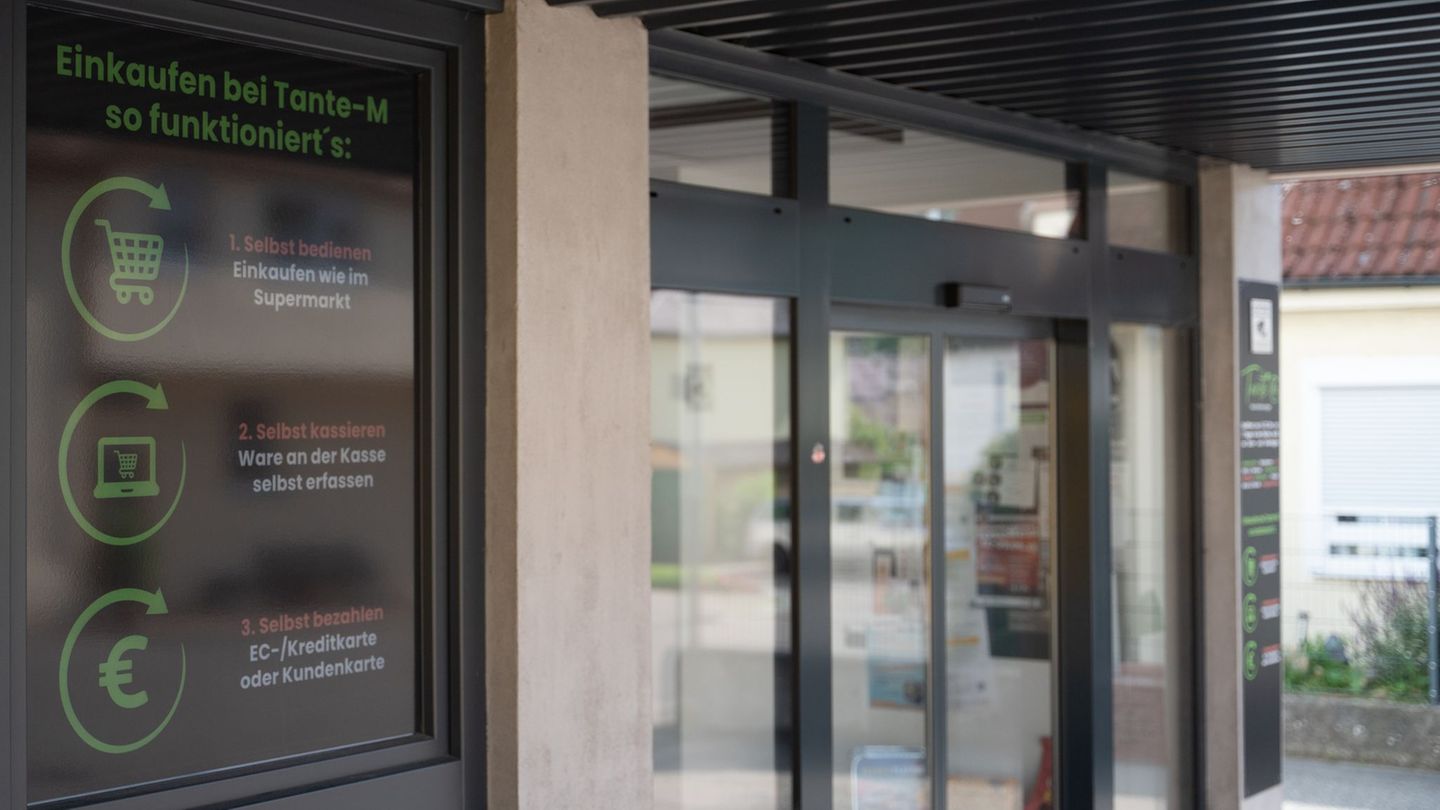Shopping
Debate about Sunday rest: digital markets on the advance
Copy the current link
Add to the memorial list
Smart stores facilitate everyday life and evaluate places, says an expert. Nevertheless, Sunday remains holy for many – and the debate about new shop opening times is controversial.
You can shop on Sundays without the cash register being filled-digital mini markets could be a kind of win-win solution here. After all, according to a YouGov survey on behalf of the German Press Agency, more than a third of the respondents (35 percent) believe that (more) open Sundays would help retail. But the day of rest is sacred to many at least in a figurative sense.
The so-called smart stores released the contradiction, said Prof. Stephan Rüschen from the Baden-Württemberg (DHBW) University in Heilbronn. “On the one hand, there is social consensus that we do not want a general Sunday opening,” said. Even those who are not affected themselves obviously appreciate the rest of the work for other people. “On the other hand, local supply is being upgraded in rural areas.”
The general skepticism of open Sundays is also evident in the YouGov survey: 59 percent of the participants spoke out against the fact that business should generally be open more frequently on Sundays. Only 34 percent were for it. About every eighth gave the supporters to want to shop in smart stores on Sundays. The survey institute interviewed 2,006 people from July 23 to 25.
Natural supply secured, location upgraded
The DHBW interviewed people in its own survey who have already had experiences with a smart store that has been opened around the clock in their area. A very large proportion of over 80 percent, sometimes over 90 percent, is said that everyday life is simplified by the so -called unmanned local suppliers and that their location is upgraded. “Customers are very very happy that they have this offer.”
Comfort plays a larger role here as a range and price. Many appreciated the Sunday opening in particular, said the trading expert. Again, the company is usually not worth it for companies without Sunday. “Around 30 percent of sales are made on Sundays.”
The Trade Association of Germany (HDE) also sees opportunities in the digital minimal -prone opportunities. They would go out entirely without staff on Sundays and therefore did not disturb the Sunday and holiday rest, said HDE general manager Stefan Genth. “Unions and churches must also take note of this.” In addition, “The digitization of retail processes will in future become even more important in view of the lack of personnel in many economic sectors and the increasing increasing non -wage costs.”
Criticism of churches and union
On the other hand, the “Alliance for Free Sonntag”, an alliance of church organizations and the Verdi union, rejects the Sunday opening. Smart stores are automated at the cash register, but also needed personnel on Sundays, such as to grant goods, for cleaning and monitoring. In addition, the competition is distorted when other shops have to close on Sundays, and medium -sized dealers, bakeries and butchers displace.
Rüschen thinks this is weak arguments. For example, other shops would be monitored from a distance on Sundays so that someone could intervene if there was a break -in. In his view, a reference to the legal situation and the Sunday rest anchored in the Basic Law is stronger. Accordingly, Sunday and the state -recognized holidays “remain legally protected as days of rest and mental survey”. To change that, a two -thirds majority in the Bundestag would need.
With Mecklenburg-Western Pomerania, Hesse, Saxony-Anhalt and Bavaria, four federal states have changed their shop opening laws so far to enable a 24/7 opening for fully automated sales outlets. Others like Baden-Württemberg have this in mind. In many places, however, the Sunday opening of the markets is currently only tolerated, Rüschen made it clear.
The “Alliance for Free Sunday” refers to the physical and mental health of the employees. With unregulated Sunday openings, massive additional pollution threatens not only physical health, but also social life and the mental well -being of the employees.
The Bavarian offshoot of the alliance announced that it would complain against the new Bavarian State Calculation Act. The topic at the Federal Constitutional Court could land on, said Rüschen. “Then we would have clarity.”
Until then, the number of smart stores should continue to grow. According to the DHBW, it started in July 2019 in Grafenberg in Swabia. At the end of June 2025, the university counted 723 markets from various providers. “At the moment there is a new opening almost every day,” said Rüschen. “It will go on like this first.”
dpa
Source: Stern




